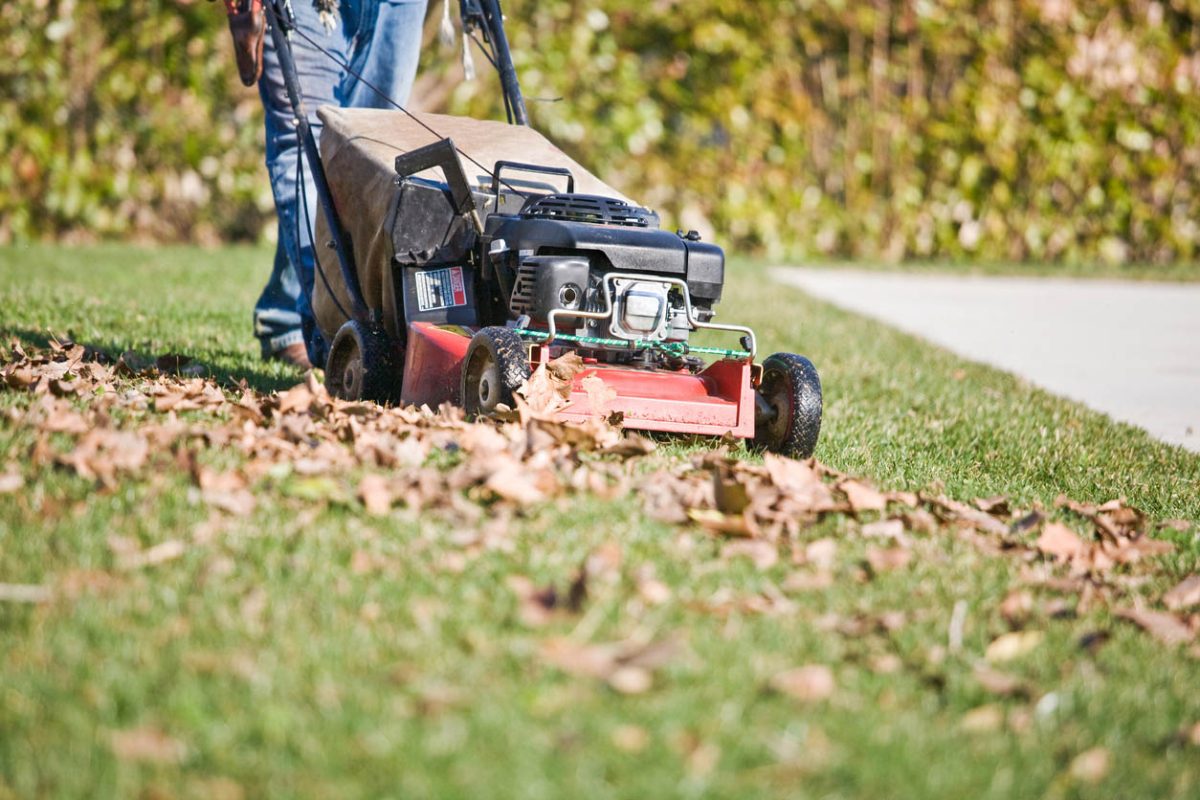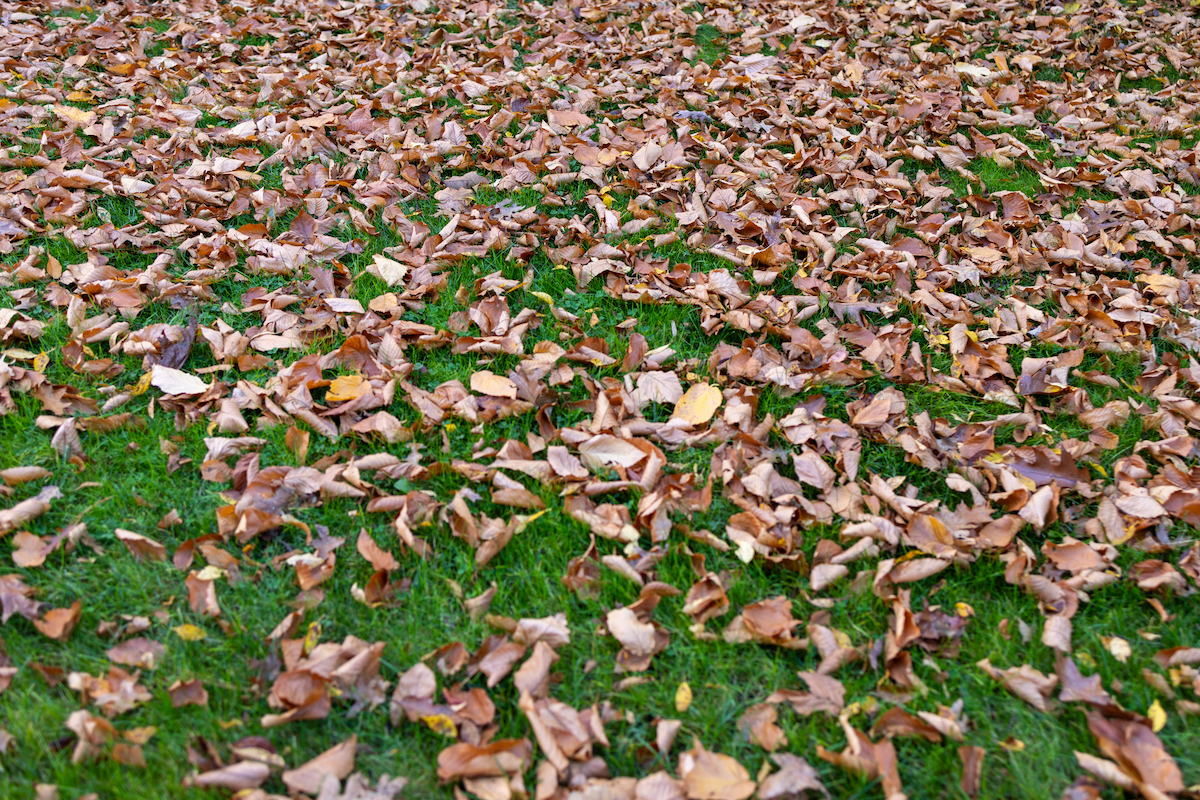Why Mulching Leaves Is Better Than Raking Them


Why Mulching Leaves Is Better Than Raking Them
Don’t bag or blow leaves in your yard just yet! Here’s why mulching fallen leaves is the best choice for your property—and here's the best way to do it.
Why blow or bag your leaves? Leaving them in the lawn and garden helps your soil flourish—and saves you a lot of effort
Every year, fall reintroduces us to a raft of pleasures available in no other season—hot apple cider, pumpkin carving, and so much more. But fall also signals the return of one chore many of us dread: raking leaves. You might be surprised to learn that, according to David Mizejewski of the National Wildlife Federation, leaf-raking is an optional endeavor. Mulching leaves instead can benefit your lawn, and local wildlife as well.
While you certainly don’t want to leave a thick layer of leaves to smother the grass growing beneath, raking up and disposing of leaves that have fallen on your lawn isn’t necessarily the best option either.
Benefits of Mulching Leaves
0:13
While you certainly don’t want to leave a thick layer of leaves to smother the grass growing beneath, raking up and disposing of leaves that have fallen on your lawn isn’t necessarily the best option either.
Benefits of Mulching Leaves

Is mulching leaves good for your lawn? Absolutely, according to Sal Musto, founder of SalCorp Landscaping & Construction in Walpole, Massachusetts. “Mulched leaves create habitat for wildlife like worms, insects, and birds,” he says. “Small animals may use them for shelter. The decomposers and foragers establish a healthy ecosystem in your yard,” he adds.
While cleaning up fallen leaves can have its place in lawn care, choosing to mulch leaves instead of raking and bagging them benefits both the gardener and the garden. Mulching leaves can:
- Improve the health of your soil: Decomposing leaves add nutrients to the soil, which in turn can nourish your grass.
- Have a positive impact on the ecosystem: Beneficial insects and microorganisms will benefit from the shelter the leaves provide as well as the nutrients they impart. For instance, many species of butterflies and moths overwinter as eggs, pupae, or adults in leaf litter.
- Implement a weed barrier: Regularly mulching leaves and leaving a thin layer on the grass can cut down on weeds after a few years.
- Save money: No need to purchase plastic garbage bags or kraft paper leaf bags.
- Reduce air pollution: Relying on neither city pickup nor a noisy, gas-powered leaf blower helps support a healthy environment.

 realization im at that stage in my life where I'm deeply invested in this now.
realization im at that stage in my life where I'm deeply invested in this now.


